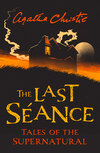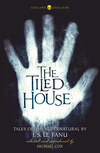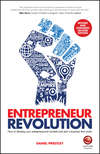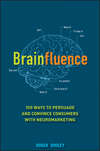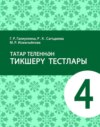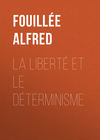Kitabı oku: «The Last Séance», sayfa 3
Charlotte’s face brightened.
‘I see,’ she said. ‘You think that is the explanation?’
A voice called her from the house, and she went in, leaving Mortimer to pace up and down the garden path. Was he satisfied with his own explanation? Did it cover the facts as he knew them? Did it account for the tension he had felt on entering the house last night?
Perhaps, and yet he still had the odd feeling that his sudden appearance had produced something very like consternation, he thought to himself:
‘I must not be carried away by the psychic explanation, it might account for Charlotte—but not for the others. My coming has upset them horribly, all except Johnnie. Whatever it is that’s the matter, Johnnie is out of it.’
He was quite sure of that, strange that he should be so positive, but there it was.
At that minute, Johnnie himself came out of the cottage and approached the guest.
‘Breakfast’s ready,’ he said awkwardly. ‘Will you come in?’
Mortimer noticed that the lad’s fingers were much stained. Johnnie felt his glance and laughed ruefully.
‘I’m always messing about with chemicals, you know,’ he said. ‘It makes Dad awfully wild sometimes. He wants me to go into building, but I want to do chemistry and research work.’
Mr Dinsmead appeared at the window ahead of them, broad, jovial, smiling, and at the sight of him all Mortimer’s distrust and antagonism re-awakened. Mrs Dinsmead was already seated at the table. She wished him ‘Good morning’ in her colourless voice, and he had again the impression that for some reason or other, she was afraid of him.
Magdalen came in last. She gave him a brief nod and took her seat opposite him.
‘Did you sleep well?’ she asked abruptly. ‘Was your bed comfortable?’
She looked at him very earnestly, and when he replied courteously in the affirmative he noticed something very like a flicker of disappointment pass over her face. What had she expected him to say, he wondered?
He turned to his host.
‘This lad of yours is interested in chemistry, it seems!’ he said pleasantly.
There was a crash. Mrs Dinsmead had dropped her tea cup.
‘Now then, Maggie, now then,’ said her husband.
It seemed to Mortimer that there was admonition, warning, in his voice. He turned to his guest and spoke fluently of the advantages of the building trade, and of not letting young boys get above themselves.
After breakfast, he went out in the garden by himself, and smoked. The time was clearly at hand when he must leave the cottage. A night’s shelter was one thing, to prolong it was difficult without an excuse, and what possible excuse could he offer? And yet he was singularly loath to depart.
Turning the thing over and over in his mind, he took a path that led round the other side of the house. His shoes were soled with crepe rubber, and made little or no noise. He was passing the kitchen window, when he heard Dinsmead’s words from within, and the words attracted his attention immediately.
‘It’s a fair lump of money, it is.’
Mrs Dinsmead’s voice answered. It was too faint in tone for Mortimer to hear the words, but Dinsmead replied:
‘Nigh on £60,000, the lawyer said.’
Mortimer had no intention of eavesdropping, but he retraced his steps very thoughtfully. The mention of money seemed to crystallize the situation. Somewhere or other there was a question of £60,000—it made the thing clearer—and uglier.
Magdalen came out of the house, but her father’s voice called her almost immediately, and she went in again. Presently Dinsmead himself joined his guest.
‘Rare good morning,’ he said genially. ‘I hope your car will be none the worse.’
‘Wants to find out when I’m going,’ thought Mortimer to himself.
Aloud he thanked Mr Dinsmead once more for his timely hospitality.
‘Not at all, not at all,’ said the other.
Magdalen and Charlotte came together out of the house, and strolled arm in arm to a rustic seat some little distance away. The dark head and the golden one made a pleasant contrast together, and on an impulse Mortimer said:
‘Your daughters are very unalike, Mr Dinsmead.’
The other who was just lighting his pipe gave a sharp jerk of the wrist, and dropped the match.
‘Do you think so?’ he asked. ‘Yes, well, I suppose they are.’
Mortimer had a flash of intuition.
‘But of course they are not both your daughters,’ he said smoothly.
He saw Dinsmead look at him, hesitate for a moment, and then make up his mind.
‘That’s very clever of you, sir,’ he said. ‘No, one of them is a foundling, we took her in as a baby and we have brought her up as our own. She herself has not the least idea of the truth, but she’ll have to know soon.’ He sighed.
‘A question of inheritance?’ suggested Mortimer quietly.
The other flashed a suspicious look at him.
Then he seemed to decide that frankness was best; his manner became almost aggressively frank and open.
‘It’s odd that you should say that, sir.’
‘A case of telepathy, eh?’ said Mortimer, and smiled.
‘It is like this, sir. We took her in to oblige the mother—for a consideration, as at the time I was just starting in the building trade. A few months ago I noticed an advertisement in the papers, and it seemed to me that the child in question must be our Magdalen. I went to see the lawyers, and there has been a lot of talk one way and another. They were suspicious—naturally, as you might say, but everything is cleared up now. I am taking the girl herself to London next week, she doesn’t know anything about it so far. Her father, it seems, was one of these rich Jewish gentlemen. He only learnt of the child’s existence a few months before his death. He set agents on to try and trace her, and left all his money to her when she should be found.’
Mortimer listened with close attention. He had no reason to doubt Mr Dinsmead’s story. It explained Magdalen’s dark beauty; explained too, perhaps, her aloof manner. Nevertheless, though the story itself might be true, something lay behind it undivulged.
But Mortimer had no intention of rousing the other’s suspicions. Instead, he must go out of his way to allay them.
‘A very interesting story, Mr Dinsmead,’ he said. ‘I congratulate Miss Magdalen. An heiress and a beauty, she has a great time ahead of her.’
‘She has that,’ agreed her father warmly, ‘and she’s a rare good girl too, Mr Cleveland.’
There was every evidence of hearty warmth in his manner.
‘Well,’ said Mortimer, ‘I must be pushing along now, I suppose. I have got to thank you once more, Mr Dinsmead, for your singularly well-timed hospitality.’
Accompanied by his host, he went into the house to bid farewell to Mrs Dinsmead. She was standing by the window with her back to them, and did not hear them enter. At her husband’s jovial: ‘Here’s Mr Cleveland come to say goodbye,’ she started nervously and swung round, dropping something which she held in her hand. Mortimer picked it up for her. It was a miniature of Charlotte done in the style of some twenty-five years ago. Mortimer repeated to her the thanks he had already proffered to her husband. He noticed again her look of fear and the furtive glances that she shot at him from beneath her eyelids.
The two girls were not in evidence, but it was not part of Mortimer’s policy to seem anxious to see them; also he had his own idea, which was shortly to prove correct.
He had gone about half a mile from the house on his way down to where he had left the car the night before, when the bushes on the side of the path were thrust aside, and Magdalen came out on the track ahead of him.
‘I had to see you,’ she said.
‘I expected you,’ said Mortimer. ‘It was you who wrote S.O.S. on the table in my room last night, wasn’t it?’
Magdalen nodded.
‘Why?’ asked Mortimer gently.
The girl turned aside and began pulling off leaves from a bush.
‘I don’t know,’ she said, ‘honestly, I don’t know.’
‘Tell me,’ said Mortimer.
Magdalen drew a deep breath.
‘I am a practical person,’ she said, ‘not the kind of person who imagines things or fancies them. You, I know, believe in ghosts and spirits. I don’t, and when I tell you that there is something very wrong in that house,’ she pointed up the hill, ‘I mean that there is something tangibly wrong; it’s not just an echo of the past. It has been coming on ever since we’ve been there. Every day it grows worse, Father is different, Mother is different, Charlotte is different.’
Mortimer interposed. ‘Is Johnnie different?’ he asked.
Magdalen looked at him, a dawning appreciation in her eyes. ‘No,’ she said, ‘now I come to think of it, Johnnie is not different. He is the only one who’s—who’s untouched by it all. He was untouched last night at tea.’
‘And you?’ asked Mortimer.
‘I was afraid—horribly afraid, just like a child—without knowing what it was I was afraid of. And father was—queer, there’s no other word for it, queer. He talked about miracles and then I prayed—actually prayed for a miracle, and you knocked on the door.’
She stopped abruptly, staring at him.
‘I seem mad to you, I suppose,’ she said defiantly.
‘No,’ said Mortimer, ‘on the contrary you seem extremely sane. All sane people have a premonition of danger if it is near them.’
‘You don’t understand,’ said Magdalen. ‘I was not afraid—for myself.’
‘For whom, then?’
But again Magdalen shook her head in a puzzled fashion. ‘I don’t know.’
She went on:
‘I wrote S.O.S. on an impulse. I had an idea—absurd, no doubt, that they would not let me speak to you—the rest of them, I mean. I don’t know what it was I meant to ask you to do. I don’t know now.’
‘Never mind,’ said Mortimer. ‘I shall do it.’
‘What can you do?’
Mortimer smiled a little.
‘I can think.’
She looked at him doubtfully.
‘Yes,’ said Mortimer, ‘a lot can be done that way, more than you would ever believe. Tell me, was there any chance word or phrase that attracted your attention just before the meal last evening?’
Magdalen frowned. ‘I don’t think so,’ she said. ‘At least I heard Father say something to Mother about Charlotte being the living image of her, and he laughed in a very queer way, but—there’s nothing odd in that, is there?’
‘No,’ said Mortimer slowly, ‘except that Charlotte is not like your mother.’
He remained lost in thought for a minute or two, then looked up to find Magdalen watching him uncertainly.
‘Go home, child,’ he said, ‘and don’t worry; leave it in my hands.’
She went obediently up the path towards the cottage. Mortimer strolled on a little further, then threw himself down on the green turf. He closed his eyes, detached himself from conscious thought or effort, and let a series of pictures flit at will across his mind.
Johnnie! He always came back to Johnnie. Johnnie, completely innocent, utterly free from all the network of suspicion and intrigue, but nevertheless the pivot round which everything turned. He remembered the crash of Mrs Dinsmead’s cup on her saucer at breakfast that morning. What had caused her agitation? A chance reference on his part to the lad’s fondness for chemicals? At the moment he had not been conscious of Mr Dinsmead, but he saw him now clearly, as he sat, his teacup poised halfway to his lips.
That took him back to Charlotte, as he had seen her when the door opened last night. She had sat staring at him over the rim of her teacup. And swiftly on that followed another memory. Mr Dinsmead emptying teacups one after the other, and saying ‘this tea is cold’.
He remembered the steam that went up. Surely the tea had not been so very cold after all?
Something began to stir in his brain. A memory of something read not so very long ago, within a month perhaps. Some account of a whole family poisoned by a lad’s carelessness. A packet of arsenic left in the larder had all dripped through on the bread below. He had read it in the paper. Probably Mr Dinsmead had read it too.
Things began to grow clearer …
Half an hour later, Mortimer Cleveland rose briskly to his feet.
It was evening once more in the cottage. The eggs were poached tonight and there was a tin of brawn. Presently Mrs Dinsmead came in from the kitchen bearing the big teapot. The family took their places round the table.
‘A contrast to last night’s weather,’ said Mrs Dinsmead, glancing towards the window.
‘Yes,’ said Mr Dinsmead, ‘it’s so still tonight that you could hear a pin drop. Now then, Mother, pour out, will you?’
Mrs Dinsmead filled the cups and handed them round the table. Then, as she put the teapot down, she gave a sudden little cry and pressed her hand to her heart. Mr Dinsmead swung round his chair, following the direction of her terrified eyes. Mortimer Cleveland was standing in the doorway.
He came forward. His manner was pleasant and apologetic.
‘I’m afraid I startled you,’ he said. ‘I had to come back for something.’
‘Back for something,’ cried Mr Dinsmead. His face was purple, his veins swelling. ‘Back for what, I should like to know?’
‘Some tea,’ said Mortimer.
With a swift gesture he took something from his pocket, and, taking up one of the teacups from the table, emptied some of its contents into a little test-tube he held in his left hand.
‘What—what are you doing?’ gasped Mr Dinsmead. His face had gone chalky-white, the purple dying out as if by magic. Mrs Dinsmead gave a thin, high, frightened cry.
‘You read the papers, I think, Mr Dinsmead? I am sure you do. Sometimes one reads accounts of a whole family being poisoned, some of them recover, some do not. In this case, one would not. The first explanation would be the tinned brawn you were eating, but supposing the doctor to be a suspicious man, not easily taken in by the tinned food theory? There is a packet of arsenic in your larder. On the shelf below it is a packet of tea. There is a convenient hole in the top shelf, what more natural to suppose then that the arsenic found its way into the tea by accident? Your son Johnnie might be blamed for carelessness, nothing more.’
‘I—I don’t know what you mean,’ gasped Dinsmead.
‘I think you do,’ Mortimer took up a second teacup and filled a second test-tube. He fixed a red label to one and a blue label to the other.
‘The red-labelled one,’ he said, ‘contains tea from your daughter Charlotte’s cup, the other from your daughter Magdalen’s. I am prepared to swear that in the first I shall find four or five times the amount of arsenic than in the latter.’
‘You are mad,’ said Dinsmead.
‘Oh! dear me, no. I am nothing of the kind. You told me today, Mr Dinsmead, that Magdalen is your daughter. Charlotte was the child you adopted, the child who was so like her mother that when I held a miniature of that mother in my hand today I mistook it for one of Charlotte herself. Your own daughter was to inherit the fortune, and since it might be impossible to keep your supposed daughter Charlotte out of sight, and someone who knew the mother might have realized the truth of the resemblance, you decided on, well—a pinch of white arsenic at the bottom of a teacup.’
Mrs Dinsmead gave a sudden high cackle, rocking herself to and fro in violent hysterics.
‘Tea,’ she squeaked, ‘that’s what he said, tea, not lemonade.’
‘Hold your tongue, can’t you?’ roared her husband wrathfully.
Mortimer saw Charlotte looking at him, wide-eyed, wondering, across the table. Then he felt a hand on his arm, and Magdalen dragged him out of earshot.
‘Those,’ she pointed at the phials—‘Daddy. You won’t—’
Mortimer laid his hand on her shoulder. ‘My child,’ he said, ‘you don’t believe in the past. I do. I believe in the atmosphere of this house. If he had not come to it, perhaps—I say perhaps—your father might not have conceived the plan he did. I keep these two test-tubes to safeguard Charlotte now and in the future. Apart from that, I shall do nothing, in gratitude, if you will, to that hand that wrote S.O.S.’
THE ADVENTURE OF THE EGYPTIAN TOMB
I have always considered that one of the most thrilling and dramatic of the many adventures I have shared with Poirot was that of our investigation into the strange series of deaths which followed upon the discovery and opening of the Tomb of King Men-her-Ra.
Hard upon the discovery of the Tomb of Tutankh-Amen by Lord Carnarvon, Sir John Willard and Mr Bleibner of New York, pursuing their excavations not far from Cairo, in the vicinity of the Pyramids of Gizeh, came unexpectedly on a series of funeral chambers. The greatest interest was aroused by their discovery. The Tomb appeared to be that of King Men-her-Ra, one of those shadowy kings of the Eighth Dynasty, when the Old Kingdom was falling to decay. Little was known about this period, and the discoveries were fully reported in the newspapers.
An event soon occurred which took a profound hold on the public mind. Sir John Willard died quite suddenly of heart failure.
The more sensational newspapers immediately took the opportunity of reviving all the old superstitious stories connected with the ill luck of certain Egyptian treasures. The unlucky Mummy at the British Museum, that hoary old chestnut, was dragged out with fresh zest, was quietly denied by the Museum, but nevertheless enjoyed all its usual vogue.
A fortnight later Mr Bleibner died of acute blood poisoning, and a few days afterwards a nephew of his shot himself in New York. The ‘Curse of Men-her-Ra’ was the talk of the day, and the magic power of dead-and-gone Egypt was exalted to a fetish point.
It was then that Poirot received a brief note from Lady Willard, widow of the dead archaeologist, asking him to go and see her at her house in Kensington Square. I accompanied him.
Lady Willard was a tall, thin woman, dressed in deep mourning. Her haggard face bore eloquent testimony to her recent grief.
‘It is kind of you to have come so promptly, Monsieur Poirot.’
‘I am at your service, Lady Willard. You wished to consult me?’
‘You are, I am aware, a detective, but it is not only as a detective that I wish to consult you. You are a man of original views, I know, you have imagination, experience of the world, tell me, Monsieur Poirot, what are your views on the supernatural?’
Poirot hesitated for a moment before he replied. He seemed to be considering. Finally he said:
‘Let us not misunderstand each other, Lady Willard. It is not a general question that you are asking me there. It has a personal application, has it not? You are referring obliquely to the death of your late husband?’
‘That is so,’ she admitted.
‘You want me to investigate the circumstances of his death?’
‘I want you to ascertain for me exactly how much is newspaper chatter, and how much may be said to be founded on fact? Three deaths, Monsieur Poirot—each one explicable taken by itself, but taken together surely an almost unbelievable coincidence, and all within a month of the opening of the tomb! It may be mere superstition, it may be some potent curse from the past that operates in ways undreamed of by modern science. The fact remains—three deaths! And I am afraid, Monsieur Poirot, horribly afraid. It may not yet be the end.’
‘For whom do you fear?’
‘For my son. When the news of my husband’s death came I was ill. My son, who has just come down from Oxford, went out there. He brought the—the body home, but now he has gone out again, in spite of my prayers and entreaties. He is so fascinated by the work that he intends to take his father’s place and carry on the system of excavations. You may think me a foolish, credulous woman, but, Monsieur Poirot, I am afraid. Supposing that the spirit of the dead King is not yet appeased? Perhaps to you I seem to be talking nonsense—’
‘No, indeed, Lady Willard,’ said Poirot quickly. ‘I, too, believe in the force of superstition, one of the greatest forces the world has ever known.’
I looked at him in surprise. I should never have credited Poirot with being superstitious. But the little man was obviously in earnest.
‘What you really demand is that I shall protect your son? I will do my utmost to keep him from harm.’
‘Yes, in the ordinary way, but against an occult influence?’
‘In volumes of the Middle Ages, Lady Willard, you will find many ways of counteracting black magic. Perhaps they knew more than we moderns with all our boasted science. Now let us come to facts, that I may have guidance. Your husband had always been a devoted Egyptologist, hadn’t he?’
‘Yes, from his youth upwards. He was one of the greatest living authorities upon the subject.’
‘But Mr Bleibner, I understand, was more or less of an amateur?’
‘Oh, quite. He was a very wealthy man who dabbled freely in any subject that happened to take his fancy. My husband managed to interest him in Egyptology, and it was his money that was so useful in financing the expedition.’
‘And the nephew? What do you know of his tastes? Was he with the party at all?’
‘I do not think so. In fact I never knew of his existence till I read of his death in the paper. I do not think he and Mr Bleibner can have been at all intimate. He never spoke of having any relations.’
‘Who are the other members of the party?’
‘Well, there’s Dr Tosswill, a minor official connected with the British Museum; Mr Schneider of the Metropolitan Museum in New York; a young American secretary; Dr Ames, who accompanies the expedition in his professional capacity; and Hassan, my husband’s devoted native servant.’
‘Do you remember the name of the American secretary?’
‘Harper, I think, but I cannot be sure. He had not been with Mr Bleibner very long, I know. He was a very pleasant young fellow.’
‘Thank you, Lady Willard.’
‘If there is anything else—’
‘For the moment, nothing. Leave it now in my hands, and be assured that I will do all that is humanly possible to protect your son.’
They were not exactly reassuring words, and I observed Lady Willard wince as he uttered them. Yet, at the same time, the fact that he had not pooh-poohed her fears seemed in itself to be a relief to her.
For my part I had never before suspected that Poirot had so deep a vein of superstition in his nature. I tackled him on the subject as we went homewards. His manner was grave and earnest.
‘But yes, Hastings. I believe in these things. You must not underrate the force of superstition.’
‘What are we going to do about it?’
‘Toujours pratique, the good Hastings! Eh bien, to begin with we are going to cable to New York for fuller details of young Mr Bleibner’s death.’
He duly sent off his cable. The reply was full and precise. Young Rupert Bleibner had been in low water for several years. He had been a beach-comber and a remittance man in several South Sea islands, but had returned to New York two years ago, where he had rapidly sunk lower and lower. The most significant thing, to my mind, was that he had recently managed to borrow enough money to take him to Egypt. ‘I’ve a good friend there I can borrow from,’ he had declared. Here, however, his plans had gone awry. He had returned to New York cursing his skinflint of an uncle who cared more for the bones of dead and gone kings than his own flesh and blood. It was during his sojourn in Egypt that the death of Sir John Willard had occurred. Rupert had plunged once more into his life of dissipation in New York, and then, without warning, he had committed suicide, leaving behind him a letter which contained some curious phrases. It seemed written in a sudden fit of remorse. He referred to himself as a leper and an outcast, and the letter ended by declaring that such as he were better dead.
A shadowy theory leapt into my brain. I had never really believed in the vengeance of a long dead Egyptian king. I saw here a more modern crime. Supposing this young man had decided to do away with his uncle—preferably by poison. By mistake, Sir John Willard receives the fatal dose. The young man returns to New York, haunted by his crime. The news of his uncle’s death reaches him. He realizes how unnecessary his crime has been, and stricken with remorse takes his own life.
I outlined my solution to Poirot. He was interested.
‘It is ingenious what you have thought of there—decidedly it is ingenious. It may even be true. But you leave out of count the fatal influence of the Tomb.’
I shrugged my shoulders.
‘You still think that has something to do with it?’
‘So much so, mon ami, that we start for Egypt tomorrow.’
‘What?’ I cried, astonished.
‘I have said it.’ An expression of conscious heroism spread over Poirot’s face. Then he groaned. ‘But oh,’ he lamented, ‘the sea! The hateful sea!’
It was a week later. Beneath our feet was the golden sand of the desert. The hot sun poured down overhead. Poirot, the picture of misery, wilted by my side. The little man was not a good traveller. Our four days’ voyage from Marseilles had been one long agony to him. He had landed at Alexandria the wraith of his former self, even his usual neatness had deserted him. We had arrived in Cairo and had driven out at once to the Mena House Hotel, right in the shadow of the Pyramids.
The charm of Egypt had laid hold of me. Not so Poirot. Dressed precisely the same as in London, he carried a small clothes-brush in his pocket and waged an unceasing war on the dust which accumulated on his dark apparel.
‘And my boots,’ he wailed. ‘Regard them, Hastings. My boots, of the neat patent leather, usually so smart and shining. See, the sand is inside them, which is painful, and outside them, which outrages the eyesight. Also the heat, it causes my moustaches to become limp—but limp!’
‘Look at the Sphinx,’ I urged. ‘Even I can feel the mystery and the charm it exhales.’
Poirot looked at it discontentedly.
‘It has not the air happy,’ he declared. ‘How could it, half-buried in sand in that untidy fashion. Ah, this cursed sand!’
‘Come, now, there’s a lot of sand in Belgium,’ I reminded him, mindful of a holiday spent at Knocke-sur-mer in the midst of ‘Les dunes impeccables’ as the guide-book had phrased it.
‘Not in Brussels,’ declared Poirot. He gazed at the Pyramids thoughtfully. ‘It is true that they, at least, are of a shape solid and geometrical, but their surface is of an unevenness most unpleasing. And the palm-trees I like them not. Not even do they plant them in rows!’
I cut short his lamentations, by suggesting that we should start for the camp. We were to ride there on camels, and the beasts were patiently kneeling, waiting for us to mount, in charge of several picturesque boys headed by a voluble dragoman.
I pass over the spectacle of Poirot on a camel. He started by groans and lamentations and ended by shrieks, gesticulations and invocations to the Virgin Mary and every Saint in the calendar. In the end, he descended ignominiously and finished the journey on a diminutive donkey. I must admit that a trotting camel is no joke for the amateur. I was stiff for several days.
At last we neared the scene of the excavations. A sunburnt man with a grey beard, in white clothes and wearing a helmet, came to meet us.
‘Monsieur Poirot and Captain Hastings? We received your cable. I’m sorry that there was no one to meet you in Cairo. An unforeseen event occurred which completely disorganized our plans.’
Poirot paled. His hand, which had stolen to his clothes-brush, stayed its course.
‘Not another death?’ he breathed.
‘Yes.’
‘Sir Guy Willard?’ I cried.
‘No, Captain Hastings. My American colleague, Mr Schneider.’
‘And the cause?’ demanded Poirot.
‘Tetanus.’
I blanched. All around me I seemed to feel an atmosphere of evil, subtle and menacing. A horrible thought flashed across me. Supposing I were next?
‘Mon Dieu,’ said Poirot, in a very low voice, ‘I do not understand this. It is horrible. Tell me, monsieur, there is no doubt that it was tetanus?’
‘I believe not. But Dr Ames will tell you more than I can do.’
‘Ah, of course, you are not the doctor.’
‘My name is Tosswill.’
This, then, was the British expert described by Lady Willard as being a minor official at the British Museum. There was something at once grave and steadfast about him that took my fancy.
‘If you will come with me,’ continued Dr Tosswill. ‘I will take you to Sir Guy Willard. He was most anxious to be informed as soon as you should arrive.’
We were taken across the camp to a large tent. Dr Tosswill lifted up the flap and we entered. Three men were sitting inside.
‘Monsieur Poirot and Captain Hastings have arrived, Sir Guy,’ said Tosswill.
The youngest of the three men jumped up and came forward to greet us. There was a certain impulsiveness in his manner which reminded me of his mother. He was not nearly so sunburnt as the others, and that fact, coupled with a certain haggardness round the eyes, made him look older than his twenty-two years. He was clearly endeavouring to bear up under a severe mental strain.
He introduced his two companions, Dr Ames, a capable-looking man of thirty-odd, with a touch of greying hair at the temples, and Mr Harper, the secretary, a pleasant lean young man wearing the national insignia of horn-rimmed spectacles.
After a few minutes’ desultory conversation the latter went out, and Dr Tosswill followed him. We were left alone with Sir Guy and Dr Ames.
‘Please ask any questions you want to ask, Monsieur Poirot,’ said Willard. ‘We are utterly dumbfounded at this strange series of disasters, but it isn’t—it can’t be, anything but coincidence.’
There was a nervousness about his manner which rather belied the words. I saw that Poirot was studying him keenly.
